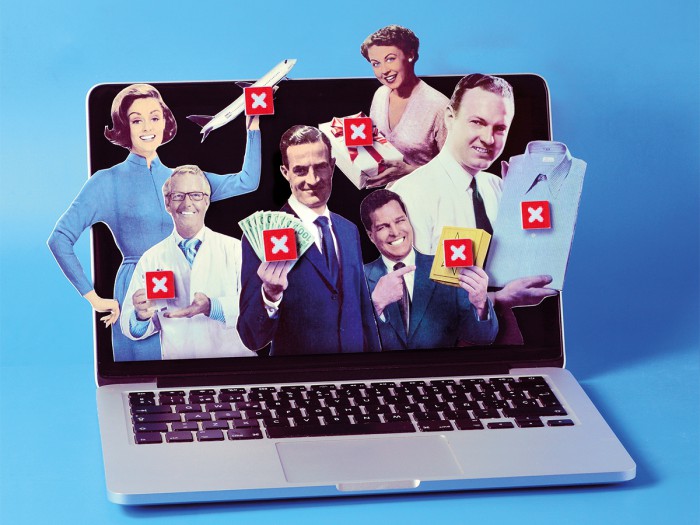
Editor’s note: There are lots of new stories to read from our sister publication Nieman Reports as it rolls out its new issue. But Nieman Lab readers might be particularly interested in this story, by former Nieman Fellow (and Lab contributor) Celeste LeCompte, about how publishers are making an effort to serve up more palatable ads in the face of more widespread adoption of blocking technology.
The first time I installed an ad blocker on my browser was in 2006. I don’t remember how I heard about Adblock Plus, but I do remember feeling a rush of satisfaction as the ads disappeared.
I clicked around the Internet, smugly appreciating the commercial-free space I’d created for myself. But it wasn’t long before I landed on the website for my own employer, the tiny independent magazine Sustainable Industries. When I did, I felt a guilty, sinking feeling. I wasn’t seeing ads there, either, and I knew quite well those ads helped pay my salary.
I uninstalled the plugin.
For years, publishers argued the same message that convinced me to turn off my ad blocker: Free content isn’t free; it’s subsidized by advertisers, who want to get their messages in front of users. But increasingly, users say, they’re the ones paying for the ads: with their privacy, their patience, and their mobile bandwidth. What they’re not paying with is the currency advertisers would most like them to spend: their attention. Instead, they’re tuning out ads or turning them off entirely.
In June 2015, an estimated 198 million Internet users around the world were blocking ads, up from 39 million in January 2012. Those data points come from the most recent annual trend report produced by anti-ad blocking software maker PageFair. The report estimates that 6 percent of global Internet users, and 16 percent of those in the U.S., were actively using ad blocking by June 2015.These aren’t big numbers — yet. But PageFair estimates that global ad blocking grew 41 percent in the past year, and even faster in the U.S. and U.K. Apple’s recent approval of the sale of ad blockers for Safari on iOS 9 opened the door for mobile ad blocking and boosted the visibility of ad blockers, generally. It’s likely to accelerate the trend.
The growth of ad blocking is a risk for digital media, because it threatens to slash revenues publishers can ill afford to lose. Shrinking revenues and tighter margins are pervasive across the industry, pinched in part by the failure of growth in digital income to offset loses among traditional channels. “This is not the time to take money away from a publisher, not a single dollar,” says Adam Singolda, founder of content-marketing ad network Taboola. “This is not a good time to say, ‘Oh, it’s just 5 percent of your revenue.’”